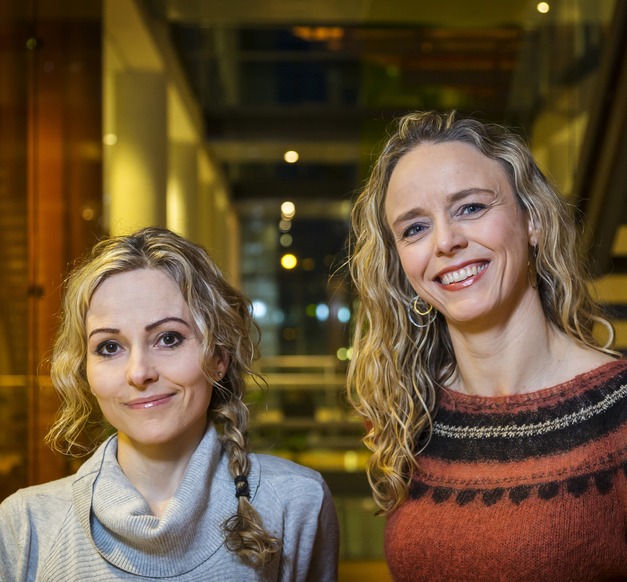Sigrún Þorsteinsdóttir, PhD student, and Professor Anna Sigríður Ólafsdóttir at the School of Education
"The research is about dietary intervention in school settings, focusing on children with and without neurodevelopmental disorders, e.g. children with ADHD and autistic spectrum disorders, and their parents." So says Sigrún Þorsteinsdóttir, a PhD student at the School of Education, of the project which began in early 2017. The research concentrates on nutrition, limited diets and the wellbeing of children and parents.
"The main focus of the research is on varied diets, particularly increasing consumption of fruit and vegetables, which are the foods most lacking in children's diets in general."
Sigrún says that there is a lack of research in this area. "There are few resources available for children with limited diets and neurodevelopmental disorders, and often the children are excluded from research of this kind. There is also little educational material for the parents of children with limited diets and neurodevelopmental disorders."
Sigrún Þorsteinsdóttir and Anna Sigríður Ólafsdóttir
"The main focus of the research is on varied diets, particularly increasing consumption of fruit and vegetables, which are the foods most lacking in children's diets in general."

Sigrún says that this topic partly chose itself, thanks to her main doctoral supervisor, Anna Sigríður Ólafsdóttir, professor of nutrition at the School of Education. "The research is her brainchild and we have developed and prepared the project in collaboration with Urður Njarðvík, senior lecturer in psychology at the University of Iceland and my secondary supervisor. Anna Sigríður and I have also worked together at the Health School at the Children's Hospital, where she has taught about taste bud training."
Sigrún says that the project also fits in well with her background in clinical child psychology. "We know that challenging behaviour from children surrounding food can be a major source of stress in the home." Sigrún says that limited diets in children, especially those who struggle with neurodevelopmental disorders, are a new and growing research topic demanding an interdisciplinary approach. "The scientific value of this research lies in increased knowledge which will be communicated in the form of scientific articles, but also through lectures and presentations for professionals and discussions with collaborating partners. The idea is that the research findings will be applied in schools, published material and general health promotion for diverse groups of children and their families."


